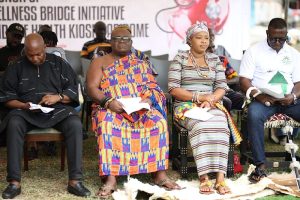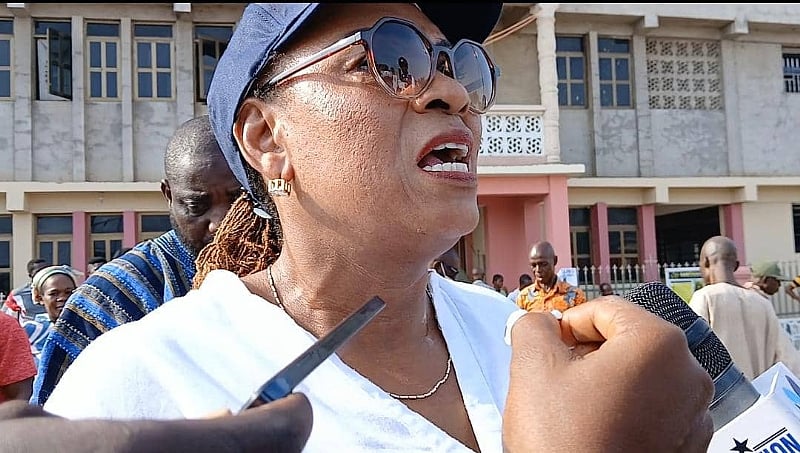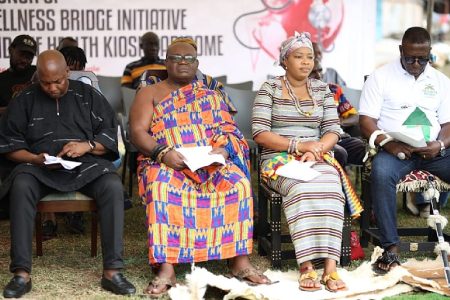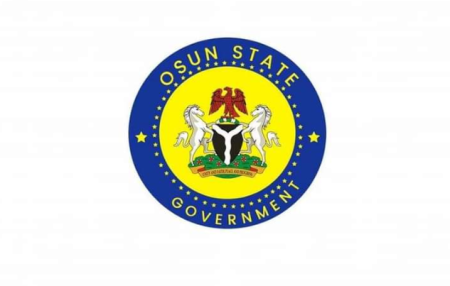The Ablekuma North parliamentary rerun election, held on Friday, July 11, 2025, descended into chaos when a group of unidentified men stormed a polling station at St. Peter’s Methodist Church. The ensuing violence saw several individuals attacked, including former Member of Parliament for Awutu Senya East, Mavis Hawa Koomson. Ms. Koomson, who served as the Minister for Fisheries and Aquaculture, subsequently became a focal point of the incident due to her use of pepper spray against her alleged attackers. Video footage circulating widely on social media captured the moment Ms. Koomson discharged the pepper spray as the group of men aggressively approached her. The incident sparked widespread condemnation and calls for an independent investigation into the circumstances surrounding the violence.
Breaking her silence on Tuesday, July 15, in an interview with UTV, Mavis Hawa Koomson vehemently denied accusations of premeditated violence. She insisted that her presence at the polling station was not intended to provoke any trouble. According to Ms. Koomson, she arrived at the voting center accompanied by her security detail, but police officers instructed her to enter alone, citing regulations prohibiting unauthorized individuals within the polling station. She stressed her compliance with these instructions, emphasizing her peaceful intentions. She further countered allegations of premeditation, asserting that she did not arrive at the scene carrying pepper spray for the purpose of causing harm.
The former MP alleged that the individuals who attacked her were known operatives of the opposition National Democratic Congress (NDC). She claimed to have recognized two of the men from previous encounters in Kasoa. Ms. Koomson recounted that upon entering the polling station, the men identified her, shouting her name before launching their attack. This, she argued, substantiated her claim that she was the target of a premeditated assault and that her use of pepper spray was a justifiable act of self-defense.
Ms. Koomson described the incident as a terrifying ordeal, stating that her reaction was instinctive and driven by fear for her safety. She cited a previous incident where her son was allegedly stabbed during a voter registration exercise, alleging that this made her a target for the NDC. Upon seeing the men approaching her with what she believed to be knives, she maintains that she acted purely in self-defense to protect herself from potential harm. She emphasized that her actions were prompted by the perceived immediate threat to her life, drawing a connection between the current incident and the previous attack on her son.
The former MP’s account of the events raises serious questions about the security measures in place during the rerun election. Her claim of being forced to enter the polling station alone, despite having security personnel, suggests potential lapses in security protocols. Furthermore, the alleged presence of known political operatives within the polling station raises concerns about the potential for intimidation and violence during electoral processes. A thorough investigation into the security arrangements and the identification of the individuals involved in the violence is crucial to ensuring accountability and preventing similar incidents in the future.
The Ablekuma North incident underscores the volatile nature of political competition and the potential for violence during elections. The clash between supporters of opposing parties, the alleged presence of armed individuals, and the subsequent use of pepper spray highlight the urgent need for enhanced security measures and conflict resolution strategies during electoral processes. The incident also raises concerns about the safety and security of political figures and the need for adequate protection to ensure their participation in democratic processes without fear of intimidation or violence. An independent investigation into the Ablekuma North incident is essential not only to determine the facts of the case but also to identify systemic weaknesses that need to be addressed to ensure free, fair, and peaceful elections in the future.














